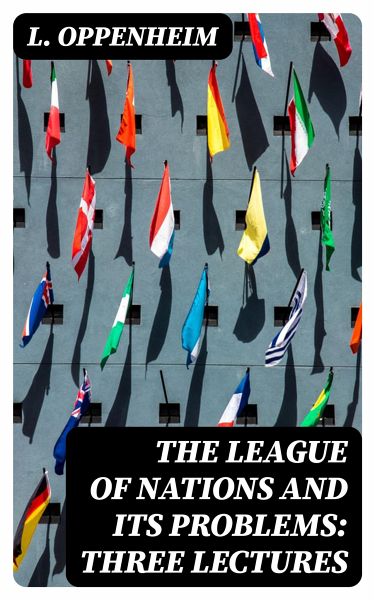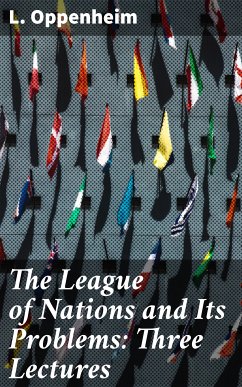
The League of Nations and Its Problems: Three Lectures (eBook, ePUB)

PAYBACK Punkte
0 °P sammeln!
In "The League of Nations and Its Problems: Three Lectures," L. Oppenheim meticulously examines the foundational principles, challenges, and the consequential impact of the League of Nations, an early attempt at collective security and international cooperation during the interwar period. Through a series of insightful lectures, Oppenheim employs a clear and engaging prose style, allowing complex geopolitical concepts to resonate with both scholars and general readers. His rigorous analysis reflects a profound understanding of international law and diplomacy, contextualizing the League's forma...
In "The League of Nations and Its Problems: Three Lectures," L. Oppenheim meticulously examines the foundational principles, challenges, and the consequential impact of the League of Nations, an early attempt at collective security and international cooperation during the interwar period. Through a series of insightful lectures, Oppenheim employs a clear and engaging prose style, allowing complex geopolitical concepts to resonate with both scholars and general readers. His rigorous analysis reflects a profound understanding of international law and diplomacy, contextualizing the League's formation against the backdrop of the aftermath of World War I and the idealistic aspirations for peace and stability. L. Oppenheim, a prominent legal scholar and a key figure in the development of international law, brings to this work a wealth of knowledge and personal experience. His involvement in legal studies and firsthand observation of the political climate of the early 20th century undoubtedly shaped his perspectives on the League's potential and pitfalls. His extensive scholarship in international relations positions him uniquely to critique both the theoretical underpinnings and the practical shortcomings of the League. This book is highly recommended for those interested in international relations, history, and law. Oppenheim's balanced critique not only provides a historical lens through which to view the League's efforts but also offers valuable insights applicable to contemporary discussions about global governance and conflict resolution. Readers will find themselves both informed and provoked to think critically about the enduring lessons of this early international organization.
Dieser Download kann aus rechtlichen Gründen nur mit Rechnungsadresse in A, B, BG, CY, CZ, D, DK, EW, E, FIN, F, GR, H, IRL, I, LT, L, LR, M, NL, PL, P, R, S, SLO, SK ausgeliefert werden.













